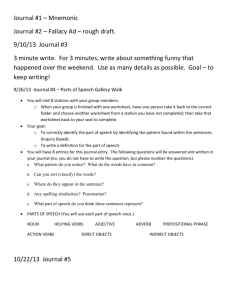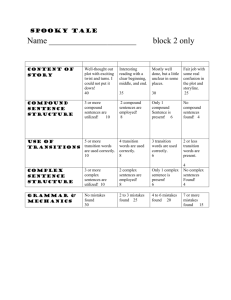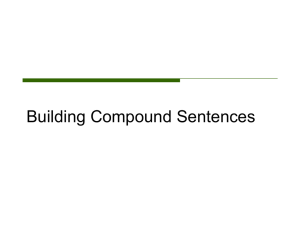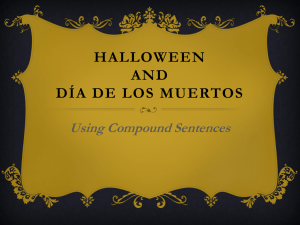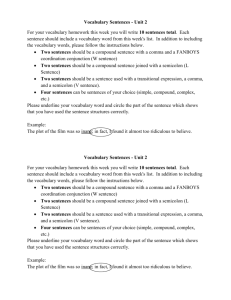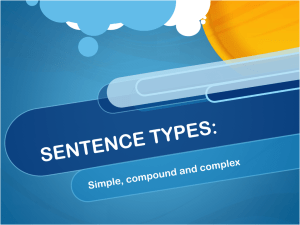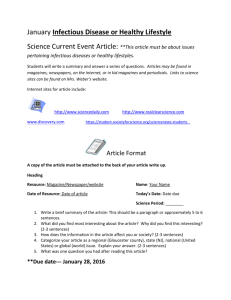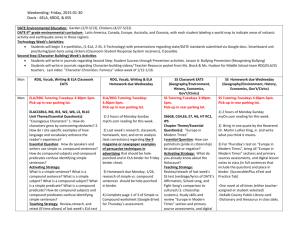Resources L.5.1a Standard: L.5.1 Demonstrate command of the
advertisement
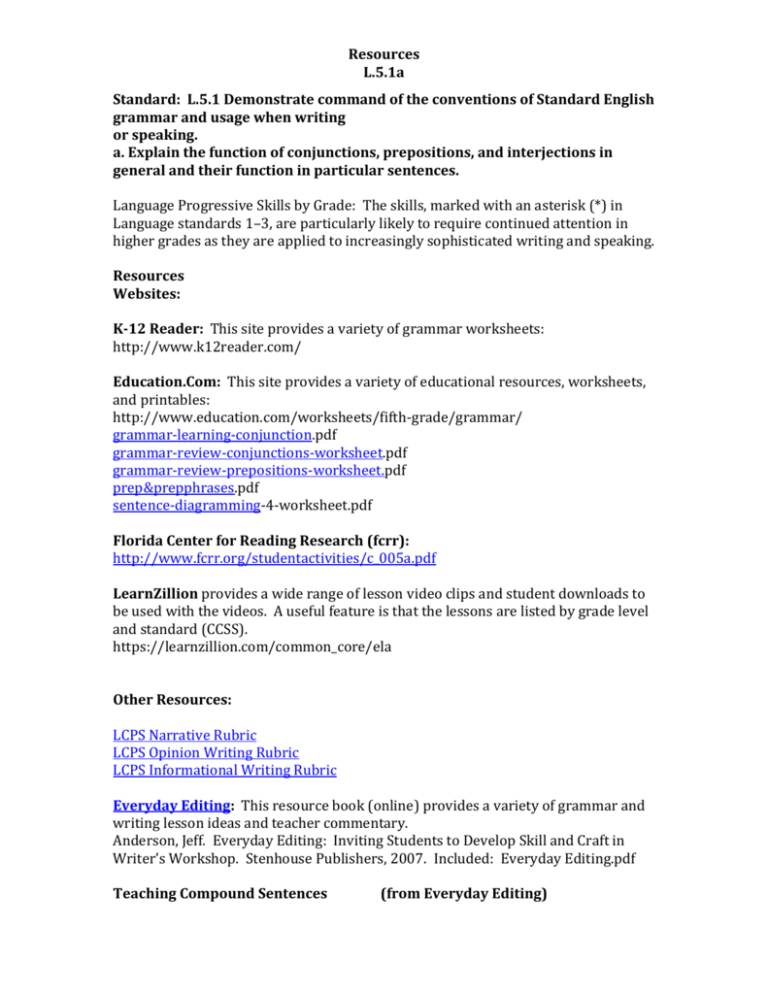
Resources L.5.1a Standard: L.5.1 Demonstrate command of the conventions of Standard English grammar and usage when writing or speaking. a. Explain the function of conjunctions, prepositions, and interjections in general and their function in particular sentences. Language Progressive Skills by Grade: The skills, marked with an asterisk (*) in Language standards 1–3, are particularly likely to require continued attention in higher grades as they are applied to increasingly sophisticated writing and speaking. Resources Websites: K-12 Reader: This site provides a variety of grammar worksheets: http://www.k12reader.com/ Education.Com: This site provides a variety of educational resources, worksheets, and printables: http://www.education.com/worksheets/fifth-grade/grammar/ grammar-learning-conjunction.pdf grammar-review-conjunctions-worksheet.pdf grammar-review-prepositions-worksheet.pdf prep&prepphrases.pdf sentence-diagramming-4-worksheet.pdf Florida Center for Reading Research (fcrr): http://www.fcrr.org/studentactivities/c_005a.pdf LearnZillion provides a wide range of lesson video clips and student downloads to be used with the videos. A useful feature is that the lessons are listed by grade level and standard (CCSS). https://learnzillion.com/common_core/ela Other Resources: LCPS Narrative Rubric LCPS Opinion Writing Rubric LCPS Informational Writing Rubric Everyday Editing: This resource book (online) provides a variety of grammar and writing lesson ideas and teacher commentary. Anderson, Jeff. Everyday Editing: Inviting Students to Develop Skill and Craft in Writer’s Workshop. Stenhouse Publishers, 2007. Included: Everyday Editing.pdf Teaching Compound Sentences (from Everyday Editing) Resources L.5.1a What you want students to walk away knowing about compound sentences: • Compound sentences are made when two or more sentences are combined with a comma and a coordinating conjunction. • Coordinating conjunctions can be remembered with the mnemonic FANBOYS— for, and, nor, but, or, yet, so. • Compound sentences can be represented in a formula: Sentence + , + one of the FANBOYS + sentence + . = Compound Sentence. Misunderstandings you may need to clarify: • Confusion that any sentence with one of the FANBOYS is a compound sentence • Confusion that any sentence with one comma is a compound sentence • Confusion that compound sentences can’t be combined with any other sentence form In chemistry class, we learned that a compound is something made by combining two or more different things. It’s the same with compound sentences. Though we define the compound sentence pattern as joining two sentences with a comma and one of the FANBOYS, we can combine three—or perhaps more—sentences with commas and FANBOYS. Compound sentences can also be formed by joining two related sentences with a semicolon. (That’s right. No need for the FANBOYS. The semicolon joins alone.) The separation is more subtle; sometimes we want less separation between sentences. And, like chemistry, how and what you combine have neutral, wonderful, or disastrous results.
